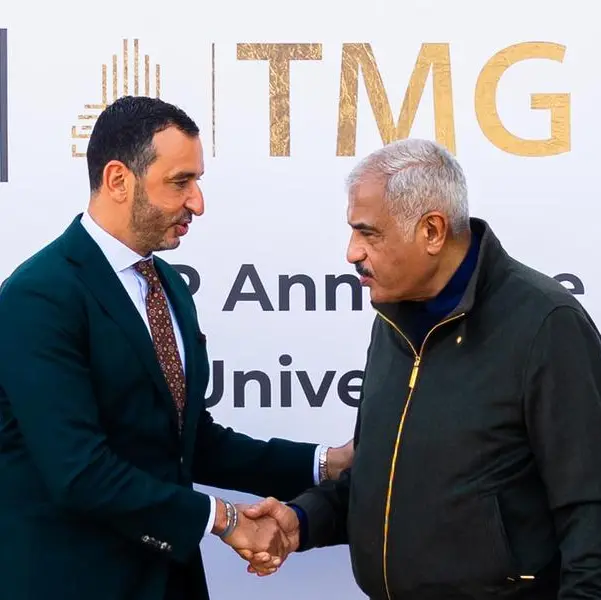Abu Dhabi: The Environment Agency – Abu Dhabi (EAD) have today announced a new policy to reduce single-use plastic materials in Abu Dhabi, mitigating its harmful effects.
The comprehensive policy, which is the first-of-its-kind in the region, aims to keep plastics out of the environment and eliminate the use of avoidable single-use plastic and non-plastic materials by 2021 through fostering a culture of recycling and re-use and encouraging more sustainable practices in the community.
One of the key aspects of the Environment Agency – Abu Dhabi (EAD)’s policy is focused on making Abu Dhabi free of single-use plastic bags by 2021.
The policy continues the legacy of the UAE’s Founding Father, the late Sheikh Zayed, who had a deep passion for preserving the environment and achieving sustainability. Under the directive of His Highness Sheikh Hamdan bin Zayed Al Nahyan, the Ruler's Representative in Al Dhafra Region and Chairman of Environment Agency - Abu Dhabi (EAD), the policy is part of the Abu Dhabi Government’s efforts to increase sustainability and improve the environment through the ‘Ghadan 21’programme that is accelerating the development of the Abu Dhabi economy and investing in the community.
Developed in line with international standards, the policy will be implemented over the next two years (2020-21) in co-ordination with government and private stakeholders and has been prepared with the support of Emirates Nature WWF and 12 other government entities, including the Department of Economic Development. Six major outlets and many private sector entities producing plastic materials in Abu Dhabi were also involved.
The scope of the policy includes developing regulations to limit the use of targeted single use plastics in Abu Dhabi gradually with a phased approach with incentives to target consumption of single use plastic bags through fees and then banning them, introduce fees on single use plastics with available sustainable alternatives and prevent free distribution of such items to the end user.
To realize Abu Dhabi’s vision for an environmentally, socially and economically sustainable waste management system, the policy identifies the 16 most common single-use plastics that cause the largest amount of marine waste (according to global studies) and will be targeted to varying degrees during the new policy implementation.
These include plastic bags, beverage cups and lids, plastic cutlery, straws and stirrers that are going to be subject to fees. Plastic bottles will be targeted through the introduction of a plastic bottle return scheme supported with incentives.
Her Excellency Dr. Shaikha Salem Al Dhaheri, Secretary General, Environment Agency - Abu Dhabi, said: "The launch of the single-use plastics policy reflects our steadfast commitment towards transitioning to a more sustainable economy that seeks to minimise waste and protect vital ecosystems in our environment.
“By implementing this new policy, Abu Dhabi will be joining more than 127 countries around the world that have already taken measures to ban or limit the use of disposable plastic materials. Our policy is aligned with international standards in order to make Abu Dhabi a pioneer in reducing the use of avoidable single use plastic and non-plastic materials by 2021.
“An estimated 13 million tonnes of plastic enter the world’s oceans annually, altering vital habitats, endangering marine wildlife and impacting the food chain by releasing toxic chemical compounds. This issue is a grave concern for the preservation of our local species, posing a threat to our marine wildlife, sea turtles and seabirds, among others. Our policy responds to this global issue.”
Her Excellency added: “If we do not take bold steps to contain the use of single-use plastics through influencing behavior and effective waste management, there will be more plastic than fish in the oceans and seas by 2050 – creating lasting impacts on, not just ocean health, but ultimately human health and global food security.”
Studies show that 36% of the global production of single use plastics are not recycled and globally more than 400 million tonnes of different types of plastics are produced every year. As a result of high consumption rates and low recycling operations, by 2050 it is expected that for every three tonnes of fish in the ocean, there will be one tonne of plastic.
In the United Arab Emirates, 11 billion plastic bags are consumed annually (according to a report presented in The World Government Summit in February 2019), which is the equivalent of 1,184 plastic bags per person per year compared to a global average of 307 plastic bags per person per year.
-Ends-
About Environment Agency – Abu Dhabi (EAD)
Established in 1996, the Environment Agency – Abu Dhabi (EAD) is committed to protecting and enhancing air quality, groundwater as well as the biodiversity of our desert and marine ecosystem. By partnering with other government entities, the private sector, NGOs and global environmental agencies, we embrace international best practice, innovation and hard work to institute effective policy measures. We seek to raise environmental awareness, facilitate sustainable development and ensure environmental issues remain one of the top priorities of our national agenda.
For media enquiries, please contact:
EAD Press Office:
Environment Agency- Abu Dhabi
Tel: +9712 693-4637
Mobile: +97150 442-5096
Email: pressoffice@ead.ae
Website: www.ead.ae
Disclaimer: The contents of this press release was provided from an external third party provider. This website is not responsible for, and does not control, such external content. This content is provided on an “as is” and “as available” basis and has not been edited in any way. Neither this website nor our affiliates guarantee the accuracy of or endorse the views or opinions expressed in this press release.
The press release is provided for informational purposes only. The content does not provide tax, legal or investment advice or opinion regarding the suitability, value or profitability of any particular security, portfolio or investment strategy. Neither this website nor our affiliates shall be liable for any errors or inaccuracies in the content, or for any actions taken by you in reliance thereon. You expressly agree that your use of the information within this article is at your sole risk.
To the fullest extent permitted by applicable law, this website, its parent company, its subsidiaries, its affiliates and the respective shareholders, directors, officers, employees, agents, advertisers, content providers and licensors will not be liable (jointly or severally) to you for any direct, indirect, consequential, special, incidental, punitive or exemplary damages, including without limitation, lost profits, lost savings and lost revenues, whether in negligence, tort, contract or any other theory of liability, even if the parties have been advised of the possibility or could have foreseen any such damages.



















